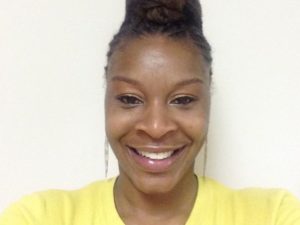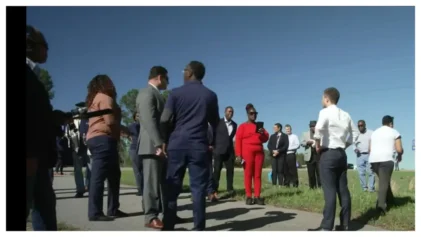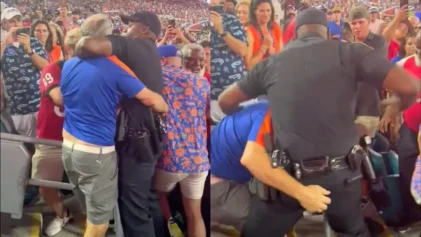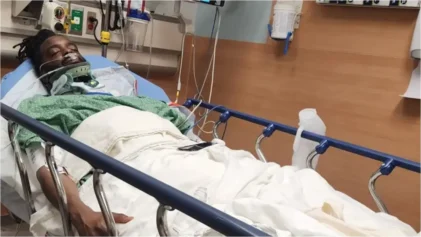
On the following day, Alabama prison authorities reported that Chapman “used a bed sheet to hang herself.”
Blow, like many, questioned if these deaths were self-inflicted or “something sinister.” Waller County District Attorney Elton Mathis recently announced Bland’s death is now being investigated as a murder.
Until I spoke with attorney J. Justin Meehan, I too, had trouble comprehending that Black suicide is the sinister product of racism.
Meehan represents the family of Kimberlee Randall-King, a 21-year-old Black mother of two who was arrested in Pagedale, Mo., less than twenty minutes away from Ferguson, in September of 2014. Booking officers classified her as “hysterical” and intensely distraught about the possibility of losing her children and employment. Facing the prospect of being caged and stripped of motherhood, she correctly forecasted what would happen once she was jailed. “I’m gonna die if I go back there,” she said.
Surveillance video shows Randall-King alone using a shirt to self-asphyxiate. She died less than two hours from the time of her arrest.
During last week’s speech to the 106th NAACP National Convention, President Barack Obama reiterated that, “African Americans are more likely to be arrested” than other races.
In tabulating the expense of this confinement, the president remembered Black children, saying, “Around one in nine African American kids has a parent in prison.”
Apparently, the thought of her children being in that number was insufferable for Randall-King.
This is the context of Bland’s declaration that, “Being a Black person… is very, very hard.”
Attorney Meehan asserts that the unnecessary and premeditated indignities of racism are designed not only to abolish pride, but our very will to live.
Three years of confinement permanently damaged Kalief Browder. He committed suicide in June of this year, but suffered through years of mental illness and several earlier attempts to end his own life.
Jennifer Gonnerman reports, “In February, 2012, he ripped his bedsheet into strips, tied them together to create a noose, and tried to hang himself from the light fixture.”
More than a thousand days on Rikers Island – including two years of solitary confinement – permanently impaired Browder’s well-being.
As a civilian and months before her lethal encounter with Waller County enforcement officers, Bland had the courage to confess that she “was real stressed out,” “depressed,” and suffering from “post traumatic stress disorder.”
Third generation physician and psychiatrist Dr. Frances Cress Welsing submits that this is common. Her scientific conclusion is that, “Black people do not qualify for mental health under the system of racism.” We cannot experience sanity in a white supremacist environment that constantly devalues Black life, encourages and celebrates our demise.
This is precisely what motivated Karyn Washington to craft ForBrownGirls; a site “to celebrate the beauty of Black women who
Sadly, Washington took her own life in the summer of 2014. It isn’t always Dylann Roof or hooded Klansmen, but the daily debilitation of racism that perpetually assails Black mental health.
The Director of the Center for Mental Health Disparities at the University of Louisville, Monnica Williams, classifies this as “race based trauma.” Being hounded by enforcement officers or subjected to relentless footage of mauled and murdered Black people can have dire health consequences for people with melanin.
Attorney Meehan describes the taxation of racism as a “weight thrown over [Black people] designed specifically for hauling in people of color and disenfranchising them,” designed specifically to overwhelm Black mothers like Kimberlee Randall-King.
Echoing the sentiments of Dr. Welsing, Meehan articulates how incarceration and the removal of #BlackSelfRespect can induce self-destructive behaviors.
“There are people who have pride in this world, and when you strip them of everything that you told them would cloak them from fear and from being flushed down the toilet and they see it means nothing primarily because of the color of their skin, what’s the sense in going on? How can you live? How can you get ahead? How can you go on?”
Many behind bars do not go on. Suicide is the leading cause of death in jails. As the prison population is intentionally, excessively Black, the mental health of the incarcerated must be of monumental importance to Black people.
Hopefully, accurate conclusions are forthcoming in the cases of Bland, Chapman and Randall-King. The incendiary footage of Bland’s detainment warrants sustained, precise scrutiny. But even if it’s determined that these Black daughters ended their own lives, white supremacy is culpable. Their deaths indict a deliberately racist environment as intolerable.
Gus T. Renegade is the host of The C.O.W.S. Talk Radio – a platform designed to dissect and counter Racism. He has interviewed and researched authors, filmmakers and scholars from around the globe.


